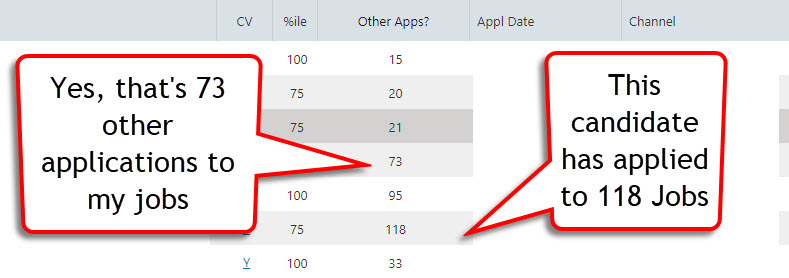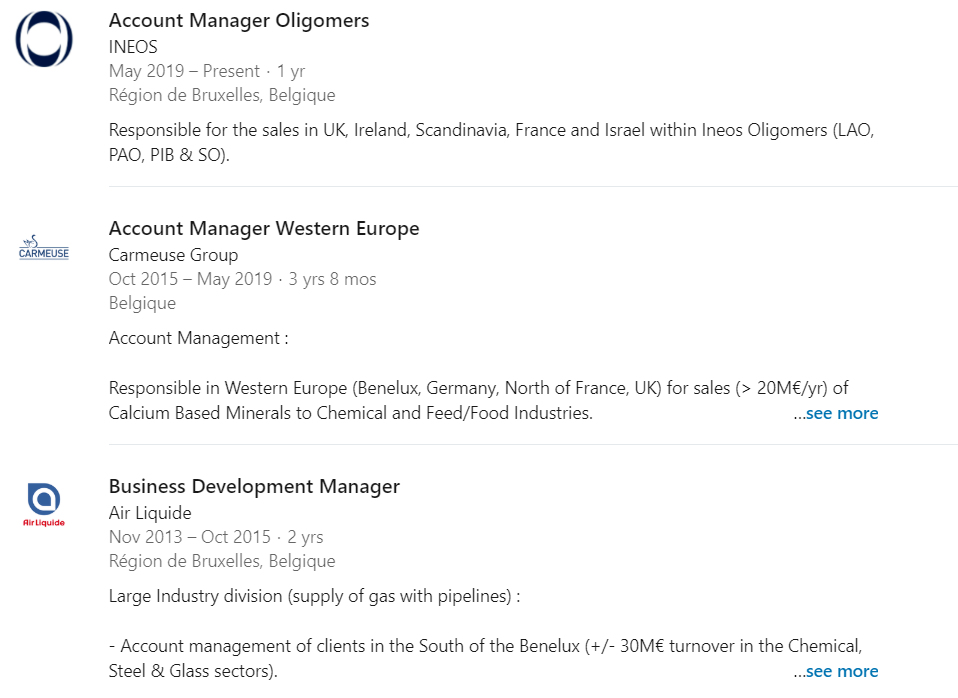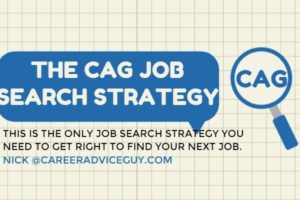Finding a new job can often be a complicated process. It’s made worse when you’re out of work and under pressure to earn and support your family. The added stress causes job hunters to make silly decisions that will cause problems long into the future.
As a recruiter, technology has made my life so much easier over the last few years. To find candidates in the past, everything was manual, and your organisational skills were tested daily trying to keep track of your best clients and candidates. Today, almost all of my job is automated. Candidates apply to job adverts online or come through my network, and I have an online database that tracks candidates applications and every conversation we’ve ever had.
Applicant Tracking Systems (ATS)
My ATS is a lifesaver. It allows me to stay organised with minimal effort. But this is the problem for you as a job seeker – It tracks everything. It follows how many times we have spoken, how many different CV’s you have sent, how many applications you have made and to what jobs you have applied to over the years.
This is where the problem is for you as a job seeker starts. Sadly, my time is minimal, and there are not enough hours in the day to get through the workload. On average, each job advert that I place on a major job board, get somewhere between six-hundred and a thousand applications. If we imagine that realistically it takes one minute to open, review and make a decision on whether your profile is correct, to get through a thousand applications would take me over two days.
Applications
If there are 1,000 applications to my job advert, realistically, I don’t want to look at more than 30 CV’s, which means I need to reduce these numbers quickly. My ATS program will search for specific keywords that are relevant to my position, but one of the first ways I reduce the number of applications is to look at how many other applications you as a candidate have made in the past.
The image below is taken directly from my companies applicant tracking system. Among other things, it shows explicitly how many applications (Other Applications), you as a candidate have made to jobs.
118 Job Applications
If you have applied to one hundred eighteen different applications, we both know you’re not taking it seriously and are not the type of candidate I should be speaking to. One hundred eighteen job applications means that you’ve gone to the career page, and clicked “apply” to every job on the list.
There is no way that you can have the relevant skills and experience to be suitable for 118 different jobs. Realistically, I don’t believe you should be applying to more than ten positions at one company. If the below was my ATS applicant list, I would run a search for “other applications” above 20, and delete them all straight away.

Reason Not To Apply For A Job
If you’ve read a job advert online, it will come with a list of requirements that candidates need to have to be suitable for a specific role. Unless you have these qualifications and experience, there is no point in apply for the position. Below are the ten most common reason I’m going to reject your CV.
Skills
If the job advert asks for specific skills, you need to have and be able to demonstrate this experience. Hiring managers generally don’t have much time, and they certainly don’t have the time to teach you how to do the role.
If I’m hiring a market manager to take control of the marketing for this website, I want to see a candidate that can demonstrate marketing experience. I’m not going to interview you unless you have all the knowledge that I require.
Experience Level
If the job advert asks for ten years of experience and you only have five, you’re not going to be interviewed. You might be able to do the job, but the hiring manager is not going to risk upsetting the rest of the team by employing someone much more junior into the team.
As an example, I have a friend who is currently looking for a new job. When I say looking, he’d like a Finance Director role, but the problem is not that he cannot do the job, it’s that he is 30 years old and doesn’t have the credibility to be successful in the role. Hiring managers look at him as a middle-manager, not someone who they should be taking advice from for the financial future of the company.
Educational Requirements
Qualifications are less relevant these days than they were twenty years ago, but if a job advert asks for a specific qualification and you don’t have it, there is no point in applying.
Finance professionals generally require a UK Finance qualification such as an ACA, ACCA or a CIMA. This is a standard finance qualification that shows your basic understand of accounting. If the job advert says that candidates MUST have an ACA, ACCA or a CIMA and you don’t have this qualification, you’re wasting your time.
Company Fit
Most companies like to see candidates coming from a similar industry or the same type of company. If you’re trying to break into an industry for the first time, applying to jobs through a job advert is not the right way to be successful. You would do better checking out my outreach program and contact the hiring manager directly. If you’re going to apply to a job advert, only do so, if you’re coming from a similar industry and have direct experience.
As an example, here’s a candidate that I met who works for Ineos, which is one of the largest chemical companies in the world. His profile is below; it’s a great example of company fit. He has spent his entire career working for a range of different chemical companies. You can see why Ineos hired him directly as an account manager. If he had worked in banking or technology, he would not have had the direct experience, and he would not be hired.
This applies to the next job as well. He is currently looking for a Senior Account Manager role. My advice, apply directly to job adverts online for Senior Account Manager roles in any chemical companies that you find online and use networking or outreach to approach potential hiring managers outside of your industry.

Location
There is no point in apply to roles that are not within commuting distance. There is too much talent on the market for companies to pay for a candidate to relocate. There is also the risk that you don’t enjoy your new city, which either affects your working output or means that you’ll quit, leaving the hiring manager with a problem.
Candidates tend to think that international locations have less competition for roles, but this is not true. It’s more likely to be the opposite, as there is no difference in taking a candidate from Europe, America’s or even Asia. Either way, a company needs to relocate the candidate and take the risks that go along with relocation.
The exception to this rule is what I would call the “not pretty” international locations. These are locations where most people don’t want to go, either because they’re not safe, or because life is more complicated. Areas include Saudi where you live under strict Islam, Russia, where it’s -40 in the winter and Iraq/Iran where there is a danger risk. Given that most people don’t want to go and work in these locations, the competition is much less.
Shift Work/Travel
Lots of jobs have shift work these days where you’re expected to be on call throughout the shift. There is no point in applying to a position that needs shift work, if you’re not prepared to work in shifts. Companies are simply not going to change their mind or try to accommodate you, just because they like you.
On the same theme, if the job advert says 50% travel, you’re going to spend a minimum of 50% of your time travelling. There is no point replying that you’re not happy to travel when the question comes up at interview. Hiring managers are not going to change the job description just because you’re the right candidate
Final Thoughts
I hear it all the time; a candidate has applied to twenty positions within a single company, not on the hope that they will be interviewed for a role, but that the hiring manager might see their CV, and feel they’re suitable for another role that is not advertised.
The problem with this is attitude, is that you’re ruining your chances of success when that position that your experience if perfect for, is advertised. Yes, of course, there are exceptions to the rule, we all know of friends that have applied to hundreds of roles, in a selection of different companies, and found a job, but for the majority of us, you’re ruining your chances by applying.
Nick Jones
Latest posts by Nick Jones (see all)
- What Job Should I Do? It Depends on Whether You’re An Introvert Or An Extrovert - November 17, 2021
- Ten Ways to Unplug and Recharge During The Holiday Season - November 3, 2021
- 10 Jobs for Teenagers to Earn Extra Money - October 13, 2021








